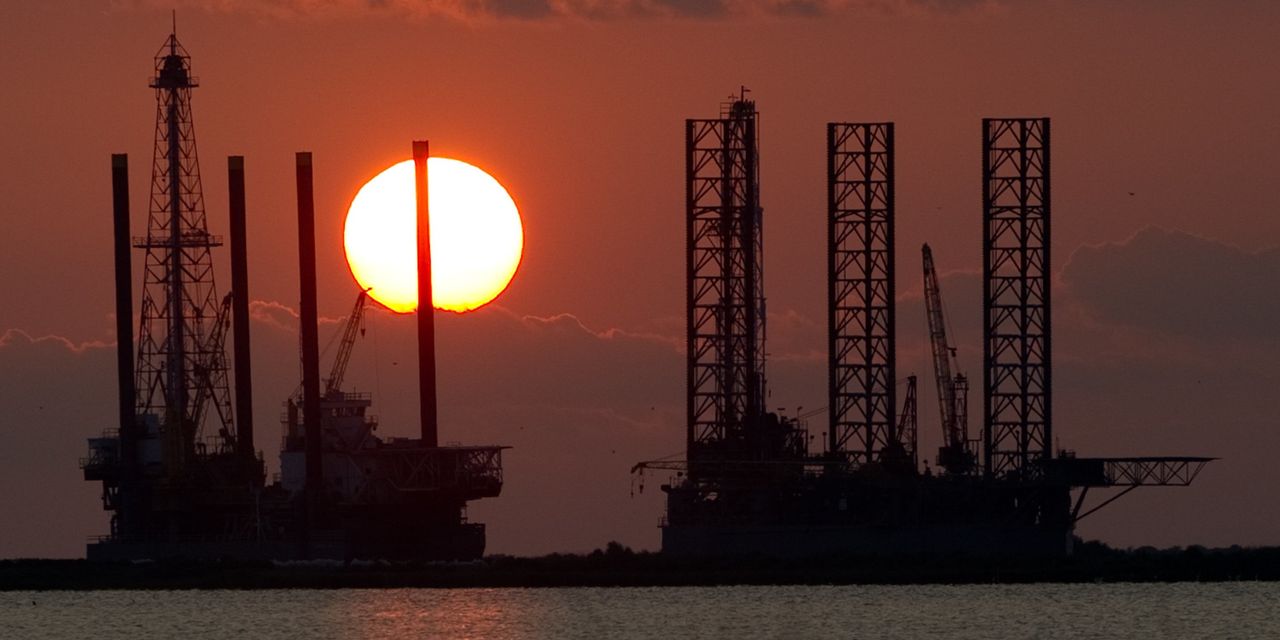Oil futures bounced off eight-month lows Tuesday, finding support as Hurricane Ian led to the shutdown of some platforms in the Gulf of Mexico and as a dollar rally takes a breather.
Price action
-
West Texas Intermediate crude for November delivery
CL.1,
+1.47% CLX22,
+1.47%
rose $1.10, or 1.4%, to $77.81 a barrel. WTI on Monday posted the lowest finish for a front-month contract since Jan. 3. -
November Brent crude
BRNX22,
+1.51% ,
the global benchmark, was up $1.28, or 1.5%, at $85.34 a barrel on ICE Futures Europe. December Brent
BRN00,
+1.46% BRNZ22,
+1.46%
rose $1.27, or 1.5%, to $84.13 a barrel. -
Back on Nymex, October gasoline
RBV22,
+1.88%
rose 1.7% to $2.425 a gallon, while October heating oil
HOV22,
+2.95%
was up 2.7% at $3.213 a gallon. -
October natural gas
NGV22,
+0.75%
gained 2% to $3.212 per million British thermal units.
Market drivers
Hurricane Ian strengthened, lashing the western tip of Cuba, as it proceeded on a path that could see it make landfall on Florida’s western coast. Chevron Corp.
CVX,
and BP PLC
BP,
BP,
on Monday said they had shut in production at some Gulf of Mexico platforms as they braced for the hurricane, according to news reports.
The ICE U.S. Dollar Index
DXY,
a measure of the currency against a basket of six major rivals, was off 0.5% after hitting a 20-year high on Monday. The dollar’s surge versus major rivals has taken a toll on commodities, stocks and other assets. The dollar’s rally comes as investors fear aggressive monetary tightening by the Federal Reserve and other major central banks will lead to a sharp global slowdown in economic growth that will crimp demand for crude oil.
Meanwhile, the oil selloff could prompt the Organization of the Petroleum Exporting Countries and its allies, known as OPEC+, to curb output when they hold their monthly meeting on Oct. 5, analysts said.
“The group will likely be getting uneasy with the degree of weakness that we have seen in the market and so there is the very real possibility that we see OPEC+ announce supply cuts in order to support the market,” said Warren Patterson, head of commodities strategy at ING, in a note.
“Clearly though, if we are to see cuts, they will need to be quite a bit larger than the 100,000 barrels a day agreed at the last meeting in order to have a meaningful impact on the market,” he said.
